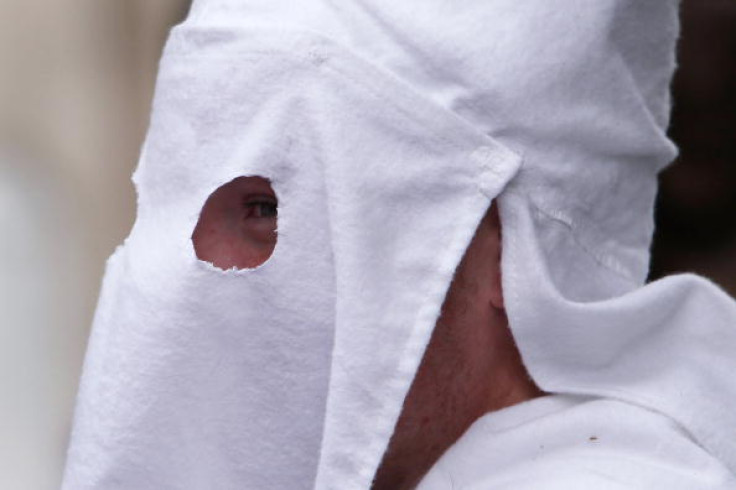Australia: Protestor in KKK Robe Invades Parliament to Call for Islamic Veils Ban
Ban the burqa protestor refused entry into parliament's building

A man wearing a Ku Klux Klan robe and hood tried to walk into the Australian parliament to protest against the recent government's decision to scrap a proposed ban on Islamic veils.
According to the bill, parliament visitors wearing the burqa – a garment that covers the entire body, with a semi-transparent cloth covering the eyes, worn by some Muslim women in public – and other face veils would have been forced to sit behind glass in an enclosure separated from the rest of the public.
The regulation sparked outrage by the opposition and rights activists, with some claiming it would target Muslim women living in the country. Following the outrage, Australia's prime minister Tony Abbotts publicly announced he was considering a U-turn on the legislation.
The protestor who wore the KKK outfit was accompanied by two others, who wore a motorbike helmet and a niqab, a traditional Muslim garment which covers head and face, except for the eyes.
The three men wore the outfits as they tried to walk into the parliament building to call for a ban on the burqa. However, they were approached by a security official who informed them they could not enter the parliament wearing a helmet or a KKK hood.
Local media have named the men as Sergio Redegalli, Nick Folkes and Victor Waterson.
Redegalli explained his motivation to local media: "It seems that you're allowed to wear a full-face covering into Parliament if you're a Muslim woman, but no other group is allowed to have that same privilege.
"We, as males, are not allowed to wear any face coverings in Parliament House."
The three men are part of the movement Faceless, which calls for a ban on Islamic burqas in public areas, claiming that the use of face veils conflicts with Australian beliefs.
Previously, Abbott had showed support for the suggested ban on full-body and face veils, citing security grounds.
Referring to the regulation, he said he finds the burqa "a fairly confronting form of attire and frankly I wish it weren't worn".
However, he added: "We are a free country, we are a free society, and it's not the business of government to tell people what they should and shouldn't wear."
© Copyright IBTimes 2024. All rights reserved.






